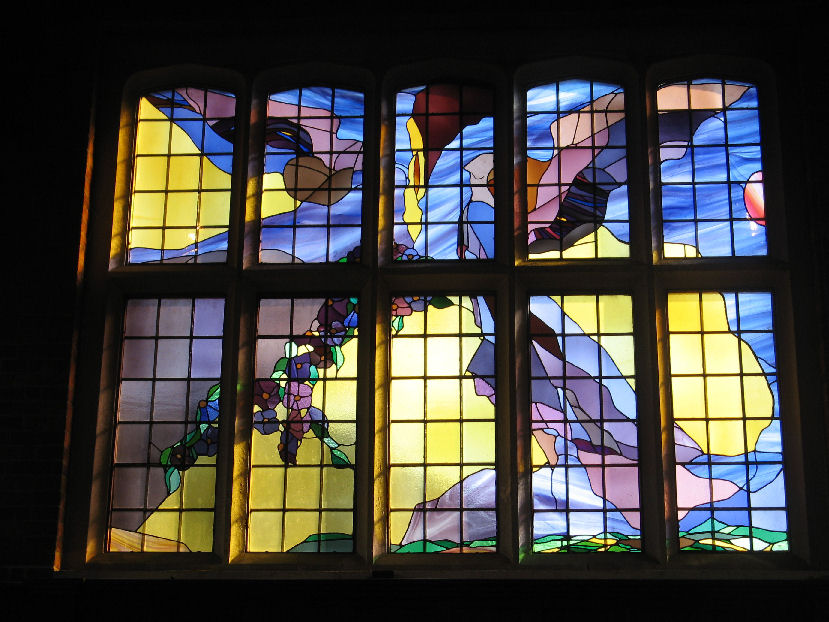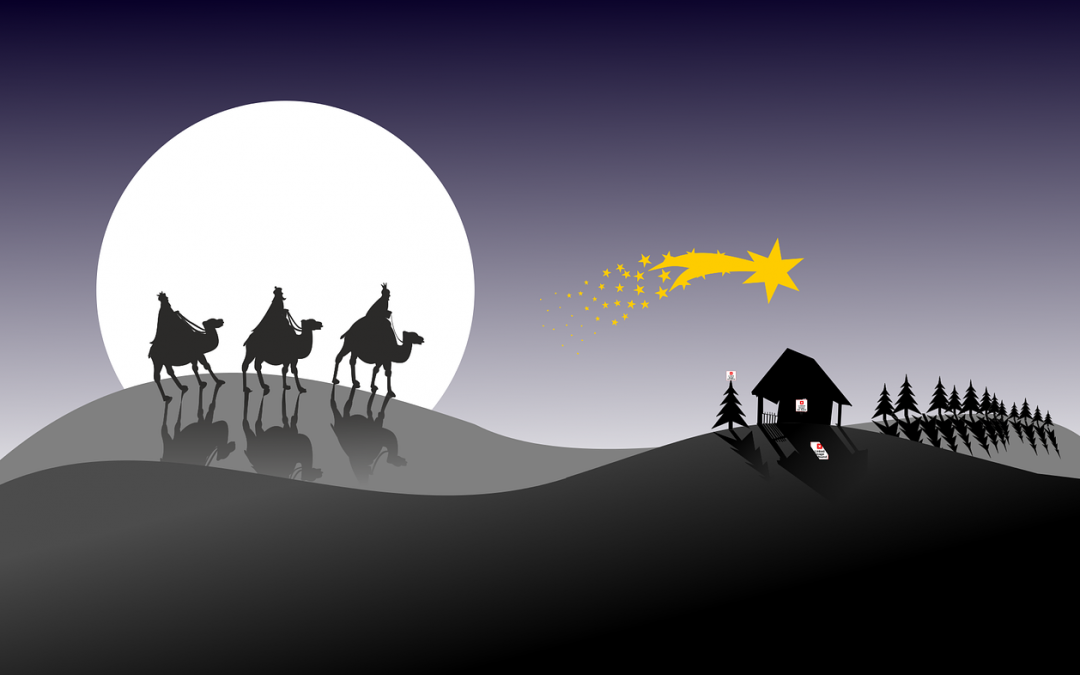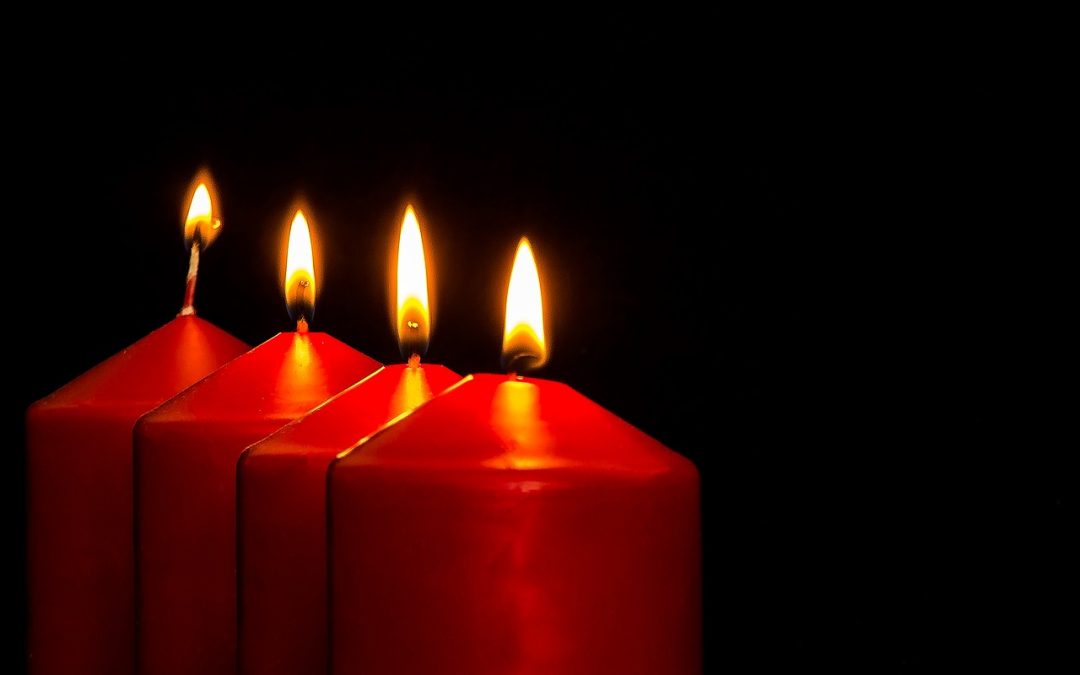
by church news | Dec 22, 2020 | Front Page
Dear All/Barn Congregations
The following items are drawn from topics discussed at the most recent PCC Barn Church, 2 December 2020 and current news as of 20 December 2020.
Vacancy (interregnum): the advertisement for the position of vicar went live on 4th December 2020. Updates from the diocese suggest a positive response and interest from a range potential candidates. Short lists and interviews are to be arranged between January and March 2020.
The Vicarage continues to be checked and is due to be refurbished – we are awaiting details from the diocese.
Church services: private prayers during lockdown were well received; thanks to Alban Clarke and Ian for the music and Paul Gregorowski for their support. Services started again on 6th December with communion by extension Richard Austen, which has been followed by Elizabeth Morse officiating at most of the following services. Despite government Tier 4 restrictions worship is allowed and a Christmas programme of services is planned – see Barn Church website for details.
Christmas events, fundraising and giving: Some small / digital enabled events are being explored and may take place in the weeks following Christmas. The usual Angel giving scheme (for disadvantaged children) will not go ahead this year and Tim Woolmer has agreed to divert giving to a similar charity. If you are interested in giving, you might like to make a donation to FORK (Feed Our Richmond Kids). This local charity works in partnership with the Vineyard and Richmond Council, running a Christmas campaign to feed under-fives at risk of food poverty. Information can be found and donations made via https://twitter.com/ForkRichmond and https://uk.virginmoneygiving.com/fundraiserdisplay/showROFundraiserPage?userUrl=FORK&pageUrl=1. We hope that Advent Angels will be back next year, but, in the meantime, please do consider giving to this worthwhile cause.
Platforms such as ‘Golden Giving’ (https://www.goldengiving.com/home) are being reviewed to enable giving in what has been and continues to be, a very challenging time for the Barn and the wider Diocese/Church of England.
Finance: Bernadette Bird has completed the accounts for 2019 and work on the 2020 accounts is well under way. We are grateful for the work that Bernadette has done and hope to keep simplifying reporting practices – all invoices must go to the Parish Office in the first instance.
Positive meetings have been had with the archdeacon and diocese finance team and it is hoped that these positive relations will benefit the Barn, its sustainability and our ability to honour pledge commitments to the Diocese.
Church buildings and grounds: the findings of the Quinquennial report are being applied by Matthew Pannett with work planned early 2021 including servicing heating, fire extinguishers, clearing gutters and tree pruning.
Church/Hall usage and bookings: Richard Wright looks after usage and bookings and reports that Nursery continues in the Barn Church Hall with other users potentially starting again depending on restrictions. The toddler group continues to use the Barn Church.
Diocese parish support fund/Technology: the Barn Church has received funding to improve our technology and develop our ability to record using digital technology. The funding of up to £500.00 will be used to buy a modern video camera and accessories so that services and events can be recorded or livestreamed. We are also looking into installing Wi-Fi at the Barn Church.
Diocese Green Grants/Garden: the Barn Church has received funding to improve our green credentials and continue the development of our grounds and garden. The funding of up to £1’500.00 will be used to buy a range of items designed to add to our existing flora and fauna.
Junior Church: Junior Church (older children) continues on-line with Lisa. We are reviewing ways of re-engaging the younger children and families for a safe return to junior church
APCM: The 2020 and 2021 APCMs will be held together, date, time and form of meeting to be decided at the next PCC meeting – it will be before the end of May 2021.
Date for next PCC meeting: Wednesday 27th January, 2021, 7pm via Zoom.
Thank you all for your support and good wishes – Merry Christmas and a Happy New Year!
Andrew and Beth xx
Co-Churchwarden’s, The Barn Church, Kew

by church news | Dec 22, 2020 | Front Page
Dear All,
With the new restrictions, there may be some confusion around what is allowed regarding worship. Therefore, we wanted to reach out to you all to discuss this.
Whilst in Tier 4, we are allowed to continue to worship and please note, we are COVID compliant at the Barn. A reminder of our Christmas services are as follows:
· 19th December: Nine carols will be available via FaceBook once the service is over https://www.facebook.com/barnkew (online event)
· 20th December: 9:30am Parish Eucharist with Revd Elisabeth Morse (Barn)
· 24th December: 6pm Joint Christmas Eve Eucharist with Bishop Richard (St.Lukes)
· 25th December: 9:30am Christmas Eucharist with Revd Elisabeth Morse (Barn)
· 27th December: 9:30am Parish Eucharist with Sister Margaret Anne McAlister (Barn)
Please see the statement from the Archbishop of Canterbury, Justin Welby, and the Bishop of London, Sarah Mullally, who chairs the Church of England’s Covid recovery group below:
“We recognise the increased risk we face from the coronavirus – which has already taken so many lives and has now developed a new, more easily transmissible, strain – and we recognise our duty to look out for our neighbours and protect the vulnerable. “So, as many of us enter these new restrictions, we must commit ourselves more than ever to looking out for those who are alone, to caring for those in need and to praying for our nation and world.
“We know that public worship – both in person and through remote means – has brought comfort, hope and inspiration to so many.“So we are grateful that, even in tier four, church buildings can be open this Christmas. But we urge everyone to take precautions and, especially for those in tier four, to be exceptionally careful.
“Even though attending public worship is permitted, many people may feel it is currently better they do not do so. Clergy and others who are shielding should certainly feel no compulsion. “At this time of year – even this year – we celebrate the birth of Jesus with joy and hope. Jesus came to bring light that shines in the darkness.
“We need that light now and always.” Archbishop of Canterbury and Bishop of London
Stay healthy, safe and happy!
Beth and Andy
Church Wardens at the Barn

by church news | Dec 22, 2020 | Front Page
Click the link below to see the recording of nine carols and lessons at the Barn
https://fb.watch/2xmVR6xnEb/

by church news | Dec 20, 2020 | Front Page, Sermons
2 Samuel 7: 1-11, 16, Luke 1: 26-38
The last candle on the Advent wreath is for Mary. But the first reading is not a prophecy from Isaiah as it has been in the previous three weeks. Instead we have a story about King David. And it is an interesting story.
David had spent his adult life constantly on the move, but now, as king, he is able to settle down. He builds himself a house; not quite a palace but a fine house made of cedar wood. And now, enjoying some respite from fighting battles, he hits on the idea of building a house for God. After all, he says, surely it is time God has a house too? So he calls the prophet Nathan, suggests the idea to him, and gratifyingly receives a positive response.
David has grand ideas. Being an extrovert he is the sort of person who finds it easier to think when throwing ideas around with other people. Nathan, however is an introvert, and introverts need to sleep on things and to remove themselves from distractions. So that night, Nathan’s head is full of questions. A house for God? Is that a good idea? God has never had a house. Ever since Israel can remember, God has been on the move, travelling with his people. And if God had a house, wouldn’t that change the nature of God? Mightn’t building a house be like trying to pin God down and keep him in one place inside four walls? Have not temples always testified more to the prestige of the one who builds it than to the divinity it is supposed to be dedicated to?
Nathan eventually falls asleep and he dreams; and in his dream God speaks, confirming all his misgivings. But God also tells Nathan something else. God does not want a house for himself, God wants to give David a house. Not a cedar palace with four walls like the one David has built for himself but a royal lineage otherwise known as ‘the house of David’. God tells Nathan to tell David ‘Your house will endure and your kingdom for ever; your throne shall stand firm to eternity.’ A son is promised. And it is from this promise that the prophets dream their messianic dreams of a peaceful kingdom that knows no end.
And now we see why the lectionary places this reading with the story of the annunciation today. The Son, the Prince of Peace, that is promised is still far into the future. As the carol goes ‘To you in David’s town this day is born of David’s line, a Saviour who is Christ the Lord and this shall be the sign:’ This is the house promised to David. A promise made like that to Abraham before him. Abraham was promised the birth of a nation and in our first reading today, David is promised he will have a house. But not a brick kind of house, instead God means a royal lineage. We are familiar with terms like the House of Windsor and the House of the Plantagenet’s, but David would not have understood ‘house’ in this way. And, like Abraham, David will not see this fulfilled in his lifetime and so must trust that God will keep his word.
And, of course, God is telling not just of a different kind of house but of a quite different kind of king. The Messiah will be both David’s descendant and the Son of God. And this new king will be quite different from other kings. This new king will model kingship as God wants it to be understood. Not a king of power but a king who serves the poor. Not a king of wealth but a king who fights the injustice of the powerful. Not a king born in a palace or a fine cedar house but a king born in a stable.
Don’t get David wrong – his desire to honour God was genuine, and he thought carefully and lovingly about the best way to do it. But he was mistaken. A physical house was about David’s need for security and control. God has no need of that and, as God explains patiently to Nathan, it is not humanity’s job to make him a home but his, God’s, job to make this world into a home for us.
And in the gospel reading we learn of the kind of home God truly wants. The angel comes to negotiate with Mary for the kind of home that God is making and, patiently, the angel reassures the bewildered girl. Mary has one question – and it is a clue to her nature. She does not demand to know exactly what God is hoping to achieve; she does not let the importance of the task she has been given go to her head. All she asks is: ‘Aren’t I a bit of a problem? Are you sure I fulfil your requirements?’
And the angel points her in the direction of her cousin Elizabeth. This young girl needs support and love and she will find it with the older woman, the one person who will understand what it is all about.
In Mary, God finds what he is looking for – a temporary dwelling place. The baby briefly carried in her womb will grow up to be a king constantly on the move, being with his people, going where they need him. This is God making his home with his people in the way he has always done.
We have a saying – if the mountain won’t go to Mohammed then Mohammed must go to the mountain. Here this could be translated as – God does not stay in one place waiting for people to come to him, instead God goes out to his people. God knows that we long for love, security, peace, fulfilment, joy – in short a home. But all these things are to be found in God, our only real home.
And having talked about David and Mary, where are we in these stories?
Well, interestingly, do you know what the word Bethlehem means? In Hebrew it means ‘little house of bread’. If you think about it, what can better symbolise God living amongst his people, being where we are, than by our receiving bread at the Eucharist?
So, in this last week before Christmas when tempers are getting frayed by government announcements and changes made to plans, we need to remember just what preparing for Christmas is about. It is not about how we decorate our houses, the food and drink we prepare or even the number of people we share the festivities with. These are the outward, physical signs that take up so much time and energy. Rather, it is about reminding ourselves – and those around us – that the focus is on the spiritual gifts like remembering someone, giving them time, generosity of spirit, allowing people to break the habits of a lifetime without recrimination – this is what makes the real welcome, the real hospitality, the sense of what ‘home’ is really about. Mary made a home in her arms for the Christ child. The shepherds gave the new little stranger a welcome by visiting him and the wise men were generous not with the gifts they brought but by honouring a family that could so easily have been overlooked.
Sausage and mash with love and laughter rather than turkey with all the trimmings – why not!?
Revd Elisabeth Morse

by church news | Dec 15, 2020 | Front Page
20th 9.30am Parish Eucharist with Revd Elisabeth Morse
25th 9.30am Christmas Eucharist with Revd Elisabeth Morse
27th 9.30am Parish Eucharist with Sister Margaret Anne McAlister

by church news | Dec 13, 2020 | Front Page, Sermons
Isaiah 61:1-4, 8-11; John 1:6-8, 19-28
St Augustine of Hippo once asked himself the following question ‘What is time? If no one asks me, I know what it is: but if I want to explain it to someone who asks, I haven’t a clue.’
There are all sorts of things we feel we know until, that is, someone asks us when we can often find ourselves stuck.
And time is a great Advent theme. Philosophers have argued endlessly about time. Most of us probably do not have great thoughts about the nature of time but we do have acute experience of it. At the moment we are all wanting to know when we can get the vaccine, when family life can return to normal, when we can stop having to wear masks and so on. Time in the here and now, never mind the kind of time that Advent talks of.
So TIME. What is it?
There may be more, but there are three particular pictures of time that I can imagine. Time as a circle, time as a straight line and time as a ball.
Probably the oldest picture of time is like a circle, as in the constantly repeating cycle of the seasons or of night into day. When peasants toiled in their fields year after year doing the same things over and over again, time was thought of as a great wheel which goes round and round. The Advent wreath illustrates time as a circle. Time as a circle is a wonder but it can also be a trap. A great Hindu prayer is to break the constant cycle of death and reincarnation.
The picture of time as a line is illustrated by the Advent calendar. Here, time is a sequence with a beginning and an end. Seeing time as a line was novel Jewish thought. John the Baptist talked about time as a line, a straight path with an end. Talking about time in this way meant the unending circle could be broken. This, Jews were told, was something God was going to do.
This new, linear view came about because the prophets talked of a future time when a Messiah would come into the world. The coming of the Messiah heralded a break from the old, never-ending circle, so it was an event anticipated with eagerness. Time was now understood as God working through the ages towards a fulfilment. This meant hope. When Isaiah told the Jews living miserably in exile that they were going to be sent back home he gave them hope. It felt like a break in a life sentence and for this reason scripture speaks of tears of grief being turned into shouts of joy with singing and dancing.
With Christianity, the news that the endless cycle of time could be broken spread throughout the world. It was a gospel of hope. It said there could be progress, that we could learn from the lessons of the past. The prophets, the seers or foretellers, as they were known, proclaimed that God was in charge of the future and, if only people would heed the prophets’ warnings and mend their ways, God would bring in the ideal kingdom. This future time was expected soon. But when the anticipated ‘end times’ did not come the Biblical writers started talking of another kind of time, a heavenly time, called eternity or the eternal.
And here we come to the third picture – of time like a ball. Thinking about time metamorphosed from a circle to a straight line and then to a ball consisting of an inner and an outer layer. Actually this concept had been around long before but it somehow became more clarified and ‘heaven’, the afterlife, became more talked about. The ball was the world with time as we know it but with more. There was also an outer, surrounding layer called the ‘eternal’. And what the visions and dreams of the prophets did was to puncture this outer layer so that humanity had a glimpse of a quite different reality outside of calendar, chronological time, as we know it on earth. We get glimpses of this other world through music, poetry and art and, of course, religious experience.
A wheel, a line, a ball – you may well by now be getting a headache! And a headache seems to be what St Augustine of Hippo was suffering when asked the question ‘what is time?’ He went on to describe time in yet another way – as memory, attention and expectation.
And this is the important bit. Because ‘memory, attention and expectation’ is, to my mind, what Advent is about.
A great Advent theme is about experiencing time as being something ‘in between’. Between the world as we know it now and the kingdom of heaven – whether that kingdom is something in the future or something that is ever present with us, surrounding us, that we cannot quite see but can occasionally glimpse. And in this ‘in between’ place we are ‘waiting’. Not the kind of waiting where we are twiddling our thumbs, hoping for something to happen; nor the kind of waiting impatiently anticipating a date in the calendar. No, ‘Advent waiting’ is what St Augustine describes as ‘memory, attention and expectation.’
And this kind of waiting describes an attitude, a way of being and behaving that we so badly need reminding of at Christmas – not because Christmas is the season of peace and goodwill, but precisely because it isn’t! Christmas produces the most extraordinary stresses because of the expectations that go with a global countdown to the 25th December. Christmas, as we know, is the time when relationships are most likely to break down, when bereavements are felt most acutely, and when people can be most impatient of each other. And this year I wonder how many rows have been engendered in different households about who is to be admitted into the bubble of 3 between the 23 and 27 of December. I know of some almighty bust-ups!
So what has our faith got to say about time? I fear it won’t solve the problem about who to invite or not to invite for Christmas but it is about having a different perspective.
At baptism Christians promise to take on a different mind-set. We promise to look at the world in ways that befriend it. This is what stewardship is about, nurturing with love and kindness what we have been entrusted with. This is what growing in the fruits of the spirit is about, practising Christian values of love, joy, generosity and peace towards each other. And prayer is about laying ourselves open to this way of living life. Not making our own agendas but being open to seeing things differently, and holding fast to what is good when facing both adversity and prosperity. This kind of waiting is about listening and discerning, it is as St Augustine says ‘attentiveness’.
And we so badly need to listen to each other with kindness and encouragement. Our world is a confused and confusing place. It is in a mess but what each one of us can do in the communities we belong to, in our families and in this church is to be generous with each other, not attacking, blaming or jumping to hasty conclusions but practicing Advent waiting – listening with a generosity of spirit and discerning the questions that need to be asked.
In the collect, we pray for all who are entrusted with preparing God’s way today, and, as with all prayers, if we truly and sincerely pray them, we may find ourselves becoming part of the answer.
Revd Elisabeth Morse






